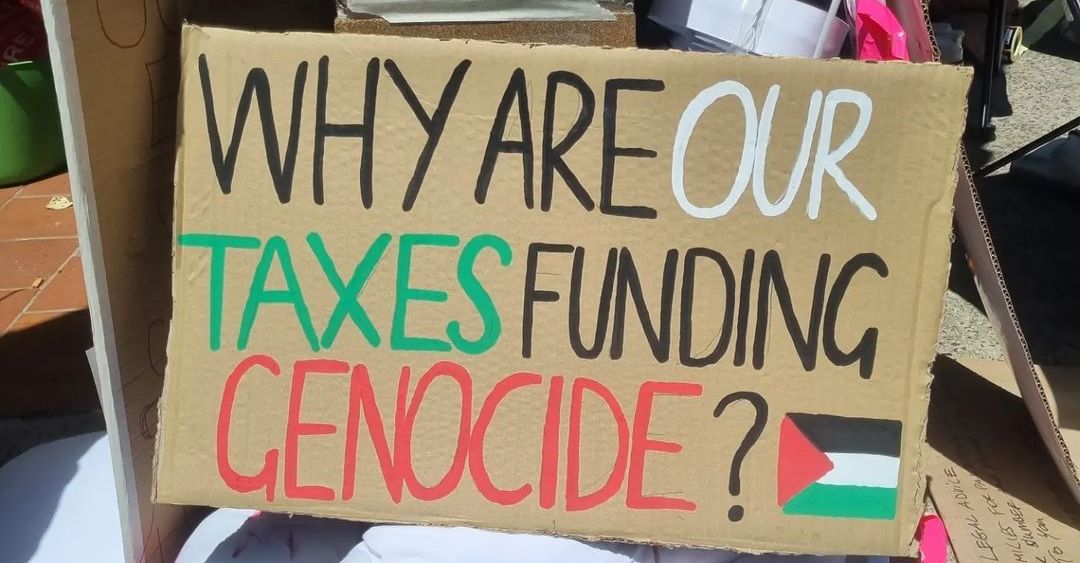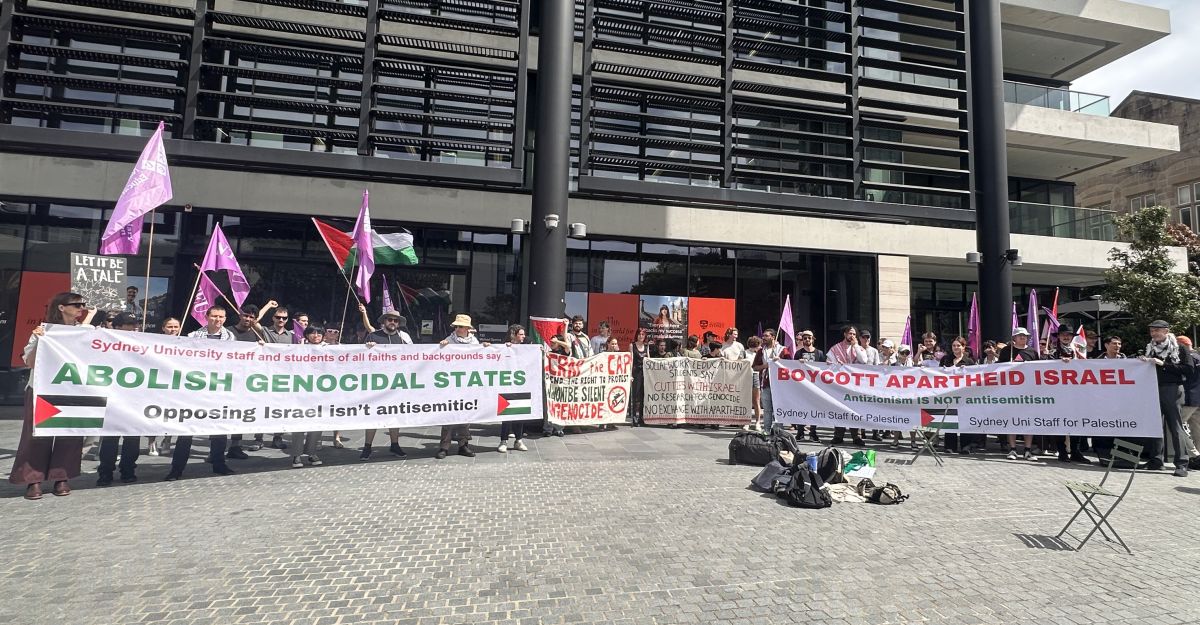“Amnesia”, “myopia” and “living in an alternative reality”. This is how the United Nations’ Special Rapporteur, international lawyer Francesca Albanese, described Australia’s response to the war in Gaza to our National Press Club. But for me and other Australian citizens of Palestinian origin, another important word was missing: betrayal.
From the moment Australian landmarks were illuminated with the colours of the Israeli flag even as Israeli bombs rained down on Gaza, Australia’s Palestinians knew they had been relegated to an inferior class of citizenship. Those feelings were confirmed on October 16, when the federal government voted in support of Israel’s war, including the war crime of depriving civilians of water, food and fuel.
One month later, with Gaza ravaged, thousands of people slaughtered and hundreds of thousands displaced, Australia’s Palestinian community were offered a ray of hope when a WhatsApp group they had formed discovered they could obtain temporary Australian tourist visas for their loved ones. Yet, when the ABC reported on November 22 that 860 such visas had been granted, the revelation led to a political backlash fuelled by Islamophobia. The Coalition’s home affairs spokesman James Paterson questioned the “very large number of visas granted” to Palestinians in a “very short time” (six weeks), stating that a former ASIO director-general had told the Senate in 2019 that the security assessments required for “cohorts like this” could take months. Federal Opposition Leader Peter Dutton joined the racist pile-on, raising the spectre of a “catastrophic outcome” for Australia from the granting of these visas.
No Coalition official raised similar concerns regarding the 1739 visas granted to Israelis in the same time span, nor did they take issue with the Australian government’s decision to grant over 11,500 visas to Ukrainian nationals since February 2022. Today the process of granting tourist visas to Palestinians has ground to a halt, with many receiving rejections of their earlier applications. Only 148 Palestinians have left Gaza with Australian support since October 7. Of those, many are Australian citizens and permanent residents and very few hold the tourist visas.
At the end of January, the International Court of Justice ordered Israel to
take prompt and decisive action to address the horrific living conditions that the Palestinian people in Gaza are being subjected to, and to act to ensure that evidence pertaining to South African claims of Israeli genocide is preserved and not destroyed.
And what did Australia do about the ICJ ruling? It promptly suspended funding for the UN agency for Palestinian refugees (UNRWA) after Israel accused four of its employees of participating in the October 7 attacks — even though Foreign Minister Penny Wong admitted she didn’t have all the facts. In 2016, her predecessor Julie Bishop suspended aid to the World Vision charity’s operation in Gaza based on Israeli allegations that one of its workers was siphoning millions of dollars to Hamas. The man is in jail but to this day Canberra has not received a shred of evidence to support the accusations.
Compare this with the recent decision by Home Affairs Minister Clare O’Neil to activate the Australian Victim of Terrorism Overseas Payment (AVTOP) scheme, which provides Israeli Australians affected by the October 7 attacks with up to $75,000 in assistance.
Prime Minister Anthony Albanese has been at pains to stress that “every Palestinian life matters, like every Israeli life matters.” But some lives, it seems, are more equal than others. Attacks by non-state actors such as Hamas are deemed terrorism, but the far greater and more lethal violence deployed by Israel, a state, is cloaked in the respectable dress of a “military operation”. That Israel’s conduct in Gaza may involve war crimes, ethnic cleansing and internationally prohibited weapons isn’t an issue the Australian government is keen to examine.
What does it mean when Mr Albanese says that “Israel must listen to the international community” and “show care in relation to … innocent civilians” in Rafah, where 1.7 million Palestinians are penned in awaiting an Israeli offensive, their homes in ruins, when at the same time Australia provides Israel with weapons and intelligence?
The question that ought to be asked of the prime minister is: why would Israel listen when its actions bear no consequences?
For most of the last twenty-five years, Israeli Prime Minister Benjamin Netanyahu has told voters that Israel can prosper without doing anything to address the plight of Palestinians. He has routinely disparaged United Nations resolutions and decisions of the International Court of Justice and the International Criminal Court. And his allies in the United States, Europe and Australia have expressed regret but done nothing. Israeli voters have duly returned him to office.
When Netanyahu came clean and openly declared his opposition to the establishment of a Palestinians state as part of any post-war scenario, Prime Minister Albanese suggested a Palestinian state is possible on the condition that it is ‘demilitarised’. At the same time, Canberra and Washington have said they disapprove of Israeli settlement building and the violence against Palestinians that accompanies it, but they do nothing to stop it.
Until the Albanese government can show a willingness to fight for the rights of Palestinians, and impose consequences on Israel for its actions, its professed democratic and egalitarian values ring hollow, and the trust of the citizens is betrayed. The message sent to Palestinian Australians is painfully clear: your anguish is secondary; your connection to this land less worthy of support.
Image: Families for Palestine



